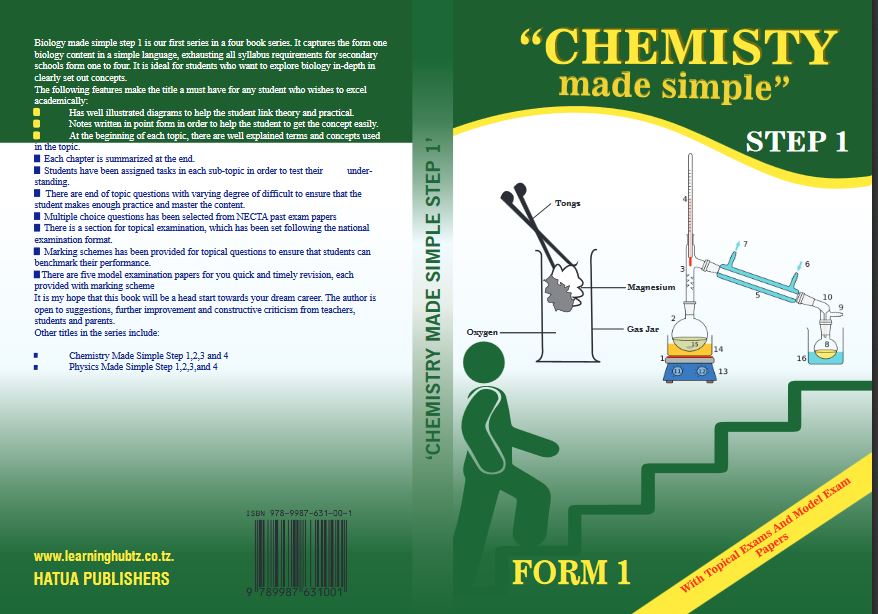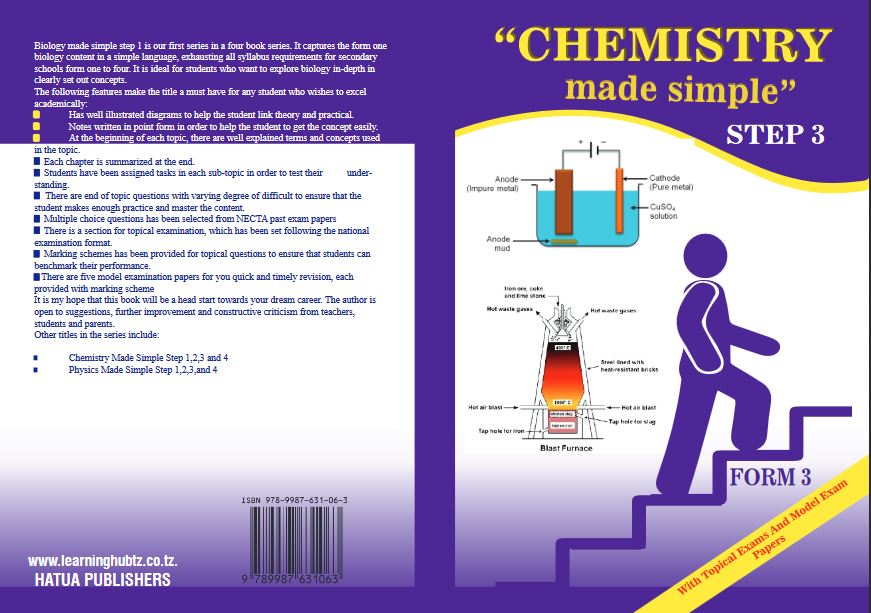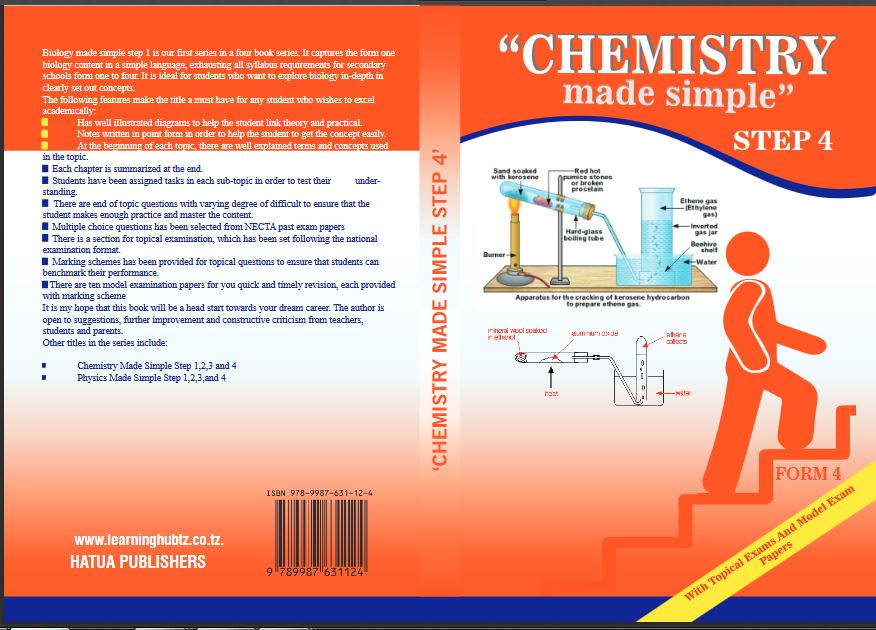
FORM THREE ENGLISH EXAM SERIES 226
FORM THREE ENGLISH EXAM SERIES 226
PRESIDENT’S OFFICE, REGIONAL ADMINISTRATION AND LOCAL GOVERNMENT
SECONDARY EXAMINATION SERIES,
TERMINAL EXAMINATIONS-MAY-2024
ENGLISH FORM THREE
Time: 3Hours
Instructions
- This paper consists of sections A, B, and C with a total eleven (11) questions.
- Answer all question in the sections A, B and two (2) questions from section C.
- Section A carries sixteen (16) marks, section B fifty four (54) marks and section C carries thirty (30) marks.
- All writing should be in blue or black pen, except for diagrams that must be drawn in pencil.
- Communication devices and any unauthorized materials are not allowed in the examination room.
SECTION A-16 MARKS
- For each of the item (i-x) choose the most correct answer from the among given alternatives
- Jacob and Job are brothers. Jacob married Juliana while Job married Eliana. How will Juliana call Eliana?
- Sister – in – law
- Sister
- Wife
- Co-sister
- Step – sister
- Rigerere was washing utensils; suddenly, the glass slipped out of her fingers. How did she exclaim?
- Ouch!
- Oops!
- Aha!
- Goodness!
- What!
- If I were you I would be a teacher “The above condition is used to express”
- Imitation situation
- Habitual situation
- An opinion
- A life experiences
- A conditional situation [ ]
- “I am a soldier” he said. What did he say?
- He said that he were a soldier
- He said that I am a soldier
- He said that he was a soldier
- He said that he is a soldier
- John said that he is a soldier [ ]
- Choose the word which means the same as the word underlined here, we have chosen the area on which the building is to be created or built
- Sight
- Site
- Plot
- Ground
- Place [ ]
- “Even though it was raining we continued playing” What does this statement mean?
- We stopped playing because of rain
- The rain made us to stop playing
- The rain could not stop us from playing
- We played despite much rain
- We could not afraid of rain [ ]
- I don’t know ……….. she will come.
- Weather
- Whether
- While
- Shall
- That
- An animal that gives us wool is called …………
- Sheep
- A cat
- A cow
- A tiger
- A ship
- Choose the correct sentence.
- Do you like a glass of water?
- Would you like a glass of water?
- Would you like the glass of water?
- Do you like the glass of water?
- Would you do like the glass of water?
- ………….. it help you in your studies?
- Will
- Was
- Is
- Are
- Were
2. Match the description of items in List A with its appropriate response in List B by writing its letter beside the corresponding item number in the answer sheet provided.
| LISTA | LIST B |
|
|
SECTION B: 54 Marks.
Answer All Questions
- Complete the following sentences using the correct word given in the box.
| Principle, Portuguese, Dairy, Principal, Epidemic, Portugal, Daily, Endemic |
- Someone from Portugal is called a………………………….
- A disease confined to a particular district or place…………………..
- Someone who heads a college is…………………..
- A place where milk is converted into a butter and cheese………………………..
- A wide spread disease that affects many individuals in a population ………
- A rule or law of nature or the basic idea on how the laws of nature are applied……
4. For each of the items (i) – (vi), change the active voice into passive voice.
(i) They do homework every Monday.
(ii) My brother is drawing pictures.
(iii) Teachers have taught the students.
(iv) Boys cleaned that room yesterday.
(v) We say that she is a teacher.
(vi) Do you speak French?
5. Rewrite the following sentences according to the instructions given after each.
- Although it was raining, we went to the farm.
Begin: In spite of ……………………………………………………….
- Jonathan asked me “Are you traveling to Dodoma with your aunt?”
Begin: Jonathan asked me if ………………………………………….
- If we study hard, we will pass the exams.
Begin: Unless ………………………………………………………….
- She is too weak to lift the box.
Use: ………………….. enough to ……………………………………..
- No sooner had I arrived at the terminal than the bus left.
Begin: As soon as …………………………………………………………….
- Although he had poor health, he came to school.
Begin: Notwithstanding …………………………………………………….
6. When the actual words of the speaker are reproduced, it is called direct speech. Rewrite the following sentences into direct speech.
- She said that she was busy .
- They said they were going to school then.
- The laboratory technician said that water freezes at 00C.
- Renu said that she had finished her work.
- The president said that he wanted them to clear up that uncertainty if they didn’t, he would decide otherwise.
- The teacher said that the sun rises in the East.
7. What will be your positive views or opinions under the following circumstances?
i. If you notice that you don’t have enough money to pay the bill for a meal you have ordered.
ii. If you get lost on a walk in town.
iii. If gold was found in your father’s farm.
iv. If your wife or husband divorces you.
v. If your impregnated classmate girl is back to school after delivery
vi. If a boy with albinism robs your brand-new Smartphone when you walk in the street.
- Your family is planning to celebrate your graduation ceremony and you are told to prepare a card to invite different family friends. Write a card to invite the guest to your family celebration. Use fictitious names.
SECTION C: 30 MARKS
9. Imagine you are a Mtakuja village chairperson, where many of your villagers are suffering from HIV/A1DS. As a chairperson, write a speech on the causes and effects of HIV/AIDS. (Give three causes and three effects).
10. By using two poems you have read in this section, explain six poetic devices. (With examples give three poetic devices from each poem)
- Read the following poem carefully and answer the questions that follow:-
SUNRISE
Be hold!
The sun has risen
And with the sons of the land has risen too
Forward they go
Well armed,
Singing the praises to the beauty of the sunrise
With the determination of long term worriers
Challenging the enemy
With the courage of free mind
And the vigour of clean purpose
Sit and wait brethren
Wait and see what glory they bring at sunset
How they pay homage to the land
And their people.
QUESTIONS
- What is the poem about?
- What is the meaning of the title of the poem?
- The poem talks about challenging the enemy. Whom do you think the enemy might be?
- What do you think SUNRISE and SUNSET symbolize?
- With the determination of “long term worriers” What do you think the words “long term” tell us about the poet’s view of struggle?
- What is the type of the poem?
- What are the possible themes of the poems? (Give out two themes)
FORM THREE ENGLISH EXAM SERIES 173
FORM THREE ENGLISH EXAM SERIES 173
PRESIDENT OFFICE REGIONAL ADMINISTRATION AND LOCAL GOVERNMENT
SECONDARY EXAMINATION SERIES
COMPETENCE BASED ASSESSMENT
ENGLISH LANGUAGE
FORM THREE
TERMINAL EXAMINATION - MAY, 2023
TIME 3:00 HRS
INSTRUCTIONS
- This paper consists of sections A, B and C with a total of twelve questions
- Answer All questions in Sections A and B and three (3) questions from section C
- Mind your Handwriting and Neatness.
SECTION A (15 Marks)
Answer all questions in this section
- For each of items (i) – (x) choose the most correct answer from among the given - Alternatives
- Suppose your classmate asks you to give an example of a correlative conjunction, which one of the following answers will you give as an example
- Neither the boy nor the girl was punished
- The girl in the movie and the boy in black are good friends
- Although Peter was late for school, nobody punished him
- He did not commit any crime but was punished
- It is always a norm seeing people write “Dear” when addressing someone in a letter, which part of a letter does the term represent?
- Body
- Address
- Salutation
- Expression
- One of the following statements is an example of type 2 conditional tense, which one is it?
- If she made her bed in time, she would be praised
- If she makes her bed in time, she will be praised
- If she had made her bed in time, she would have been praised
- If she had had made her bed in time, she would have been praised
- Amina and Papa have a child known as Willy. How does Willy call Amina’s husband
- Husband
- Father in law
- Son in law
- Father
- Identify the statement which is grammatically correct from the given alternatives
- Am not going to the village this holiday
- I’m not going to the village this holiday
- I am not going to the villege this this holiday
- Im not going to the village this holiday
- Suppose you come across the statement “You like English, don’t you?” what immediately comes to your mind?
- Incomplete question
- Question tag
- Negative statement
- Literal question
- Japhet is fond of using inanimate objects to represent human characters when writing his work. How would you describe this act?
- Personification
- Animation
- Repetition
- Oral literature
- The higher you go, the _______ it becomes
- Cooler
- Cold
- Coldest
- Cool
- One of the statements explain the correct use of the word “few”, which one is it?
- There is a few milk left in the jar
- There is few sugar in the container
- There are few guests coming for dinner
- There are few cooking flour for our guests
- How would you respond to a question that demands the use of either of the articles “a”, ”an” and “the”
- “a” immediately before a vowel
- “an” immediately before a consonant
- “the” immediately before “a” and “an”
- “a” immediately before a consonant
- Match the items in column A with their corresponding answers from column B
| Column A | Column B |
|
|
Answers
| i | ii | iii | iv | v |
SECTION B (40 Marks)
- Change the following statements into Yes/No questions
- The bus driver is drunk ______
- They are in the field planting rice _____
- The thieves broke into the room _________
- The rain had stopped when the dogs started barking_____
- The English language examination was easy ______
- Change the words given in brackets into their correct form for a meaningful sentence
- We are _______(complete) shocked by the incident that happened last week
- The _____(compete) between the two schools attracted several leaders
- We have not been given information on any ____ (arrange) of the planned meeting
- The event ______ (organize) did a recommendable work
- From the look of his facial ______(express), he showed little hope in life
- Rewrite the following sentences according to the instructions given after each.
- She bought a new book (begin; a new book)
- This movie is not interesting (supply question tag)
- My mother did not cook porridge yesterday (Begin: Porridge _____ )
- I am tired, I cannot finish this task today (re write using too, to )
- The baby is not making noise, her mother is not making noise (join using neither …nor…)
- Re arrange the following expressions for a logical meaning
- Nice food is prepared in the evenings of market days
- Doors are closed and children go to the field to play
- In the evenings of such days, celebrations fill homesteads
- Tuesdays and Fridays are market days
- In those two days, villages are disserted
| 1 | 2 | 3 | 4 | 5 |
- The following sentences are in active voice, change them into passive voice
- My father likes pet dogs
- The teacher punished the naughty students
- Maria is riding a bicycle
- Pamela visited Beatrice
- Fred wrote a nice letter
- Write down occupation/profession of the people
- Teaches graduate students
- Teaches high school students
- Head of all teachers in a primary school
- Head of all teachers in a secondary school
- Handles books in the library
- Write a descriptive essay of argumentative essay on “A teacher is Better than a Farmer”
SECTION C (45 Marks)
READING: PROGRAMME;
LIST OF READINGS FOR QUESTION 10 – 12.
NOVELS AND SHORT STORIES.
Passed Like A Shadow ![]() B. M. Mapalala (2006) DUP
B. M. Mapalala (2006) DUP
UNANSWERD CRIES ![]() Osman Conteh – Macmillan
Osman Conteh – Macmillan
Weep Not Child ![]() Ngugi wa Thiong’o 1987 Heinneman
Ngugi wa Thiong’o 1987 Heinneman
PLAYS:
Three Suitors One Husband – O. Mbia 1994 – Eya Methuen
The Lion And The Jewel – W. Soyinka 1963 OUP
POETRY:
Song of Lawino and Ocol – O. P. Bitek
Growing UP With Poetry – O. Rubadiri Ed. 1989. Heinneman
Summons ![]() R. Mabala 1970 TPH
R. Mabala 1970 TPH
- Use a poem that you have studied as a class and make critical analysis considering title, poet, form and content.
- Using any one class reader (play) that you have attempted. Identify and explain social evils that are practiced, and could get society into trouble when not handled.
- Pick any character from any novel that you have read as a class and explain why you consider him/her as an ideal person whose virtues are worth emulating.
FORM THREE ENGLISH EXAM SERIES 137
FORM THREE ENGLISH EXAM SERIES 137
PRESIDENT’S OFFICE REGIONAL ADMINISTRATION AND LOCAL GOVERNMENT
FORM THREE TERMINAL EXAMINATION JULY, 2022
ENGLISH LANGUAGE
NAME___________________________________________________________
TIME: 3 HRS
INSTRUCTIONS
- This paper consists of sections A, B and C with a total of 12 questions
- Answer all questions in section A and B
- Answer three (3) questions from section C
- Adhere to every instruction instructed under each section
FOR EXAMINER’S USE
| Qn. No. |
| MARKS |
| 1 |
|
|
| 2 |
|
|
| 3 |
|
|
| 4 |
|
|
| 5 |
|
|
| 6 |
|
|
| 7 |
|
|
| 8 |
|
|
| 9 |
|
|
| 10 |
|
|
| 11 |
|
|
| 12 |
|
|
| TOTAL |
|
|
SECTION A (15 MARKS)
Answer all questions in this section
1. Choose the correct answer from the items given in (i-x) below and write the letter in the table.
(i) Which of the following sentences express simple past tense
- I have never read such an interesting piece of novel
- I had been going to the market throughout last week
- James was buying a new pen
- Our white cat killed a rat last night
(ii) The weather today is cold; everyone walking outside ________ clothes own.
- Is seen with
- Has heavy
- Have heavy
- Used to have
(iii) I am going to the party tonight
- Is I?
- Did I?
- Aren’t I?
- Not foolish
(iv) Neither the boy nor the girl was present. This implies that
- The two were absent
- The boy was present but the girl was absent
- The girl was present but the girl was absent
- The two were present
(v) Unless you work hard, you will _______
- Not fail in your examination
- Pass by your examination
- Pass your examination
- Fail in your examination
(vi) Hardly had Winfrida opened the door when the visitors arrived means
- The visitors arrived before the door was opened
- The door was opened then the visitors arrived
- The door was long open even before arrival of the visitors
- Immediately the door was opened, the visitors arrived
(vii) Moses owns a house. The correct possessive noun is _____
- Moses’
- Mose’s
- Moseses’
- Mosesess’
(viii) The two are _____ in love
- Truthfully
- Truely
- Truly
- Trully
(ix) The superlative form of the word “cold” is ________
- Coldest
- Coolest
- Cooler
- Colder
(x) The ____ you walk the more you get tired
- Father
- Furthest
- Fartherer
- Farther
| i | ii | iii | iv | v | vi | vii | viii | ix | x |
|
|
|
|
|
|
|
|
|
|
|
2. Match the items in List A with words in List B to make a meaningful complement.
| LIST A | LIST B |
|
|
| LIST A | i | ii | iii | iv | v |
| LIST B |
|
|
|
|
|
SECTION B (40 MARKS)
Answer all questions in this section
3. Rewrite the following sentences according to the Instructions given after each.
- My room is full, but I can still host some of you (Rewrite using although…..)
- Nobody is listening to your speech (Change into plural form……………..)
- I took my breakfast in the morning (Re write into past participle tense)
- We had not woken up when the guests arrived (Begin; hardly)
4. Pick the wrongly spelt word and rewrite it correctly in the spaces provided
- Their actions were contrary to the layed down rules _____
- I hope to make up for my passed mistakes _____
- Please do not comfront an angry lion ______
- My birthday party is scheduled for tommorrow ______
5. Use the correct prepositions to fill in the blanks in the sentences below
- We are required to open school ____ September
- They have been here ____ three hours
- The meeting will be held ____ Monday next week
- It has been raining ____ yesterday
6. Re arrange the following sentence in their logical order
- Rush out to the bus stop
- The newspaper vendor thrust copies of the evening paper at them
- Every evening when the workers
- “Daily news, Mwanachi and Tanzania Daima among others”
7. Identify components of Curriculum Vitae
- . . . . . . . . . . . . . . . . . . . . . . . . . .
- . . . . . . . . . . . . . . . . . . . . . . . . . .
- . . . . . . . . . . . . . . . . . . . . . . . . . .
- . . . . . . . . . . . . . . . . . . . . . . . . . .
8. Identify the meaning/s of idioms given below
- To let the cat out of the bag
- To kick the bucket
- Beat around the bush
- Raining cats and dogs
SECTION C
Answer only three questions in this section
9. Write a short composition about EAST AFRICAN COMMUNITY
LIST OF READING
| NOVELS AND SHORT STORIES | |
| A Wreath for Fr. Mayer | S. N. Ndunguru (1977), Mkuki na Nyota |
| Unanswered Cries | Osman Conteh, Macmillan |
| Passed Like a Shadow | B. M Mapalala (2006), DUP |
| Spared | S. N. Ndunguru (2004), Mkuki na Nyota |
| Weep Not Child | Ngugi wa Thiong'o (1987); Heinemann |
| The Interview | P. Ngugi (2002), Macmillan |
| PLAYS | |
| Three Suitors: One Husband | O. Mbia (1994), Eyre Methuen |
| The Lion and the Jewel | W. Soyinka (1963), OUP |
| This Time Tomorrow | Ngugi wa Thiong'o (1972), Heinemann |
| The Black Hermit | Ngugi wa Thiong'o (1968) Heinemann |
| POETRY | |
| Songs of Lawino and Ocol | O. P'Bitek (1979), EAPH |
| Growing up with Poetry | D. Rubadiri (ed) (1989), Heinemann |
| Summons | R. Mabala (1960), TPH |
10. Read the following poem and then answer the questions that follow:
YOUR PAIN BY ARMANDO GUEBUZA (MOZAMBIQUE)
Your pain
Yet more my pain
Shall suffocate oppression
Your eye
Yet more my eyes
Shall be speaking of revolt
Your scars
Yet more my scars
Will be remembering the whip
Your hands
Yet more my hands
Will be lifted fully armed
My strength
Yet more my strength
Shall overcome imperialism
My blood
Yet more your blood
Shall irrigate our victory
Questions
- Who is the persona in this poem?
- What is the poem about?
- Identify the figure of speech used in the poem.
- Identify the themes in the poem.
- Is the persona happy or sad? Explain
- How is this poem relevant to our society?
11. With the aid of two novels, show the relevance of their content to our society.
12. Discuss the causes of conflicts in our society with reference to two plays you have attempted under this program
FORM THREE ENGLISH EXAM SERIES 91
FORM THREE ENGLISH EXAM SERIES 91
THE PRESIDENT’S OFFICE MINISTRY OF EDUCATION, LOCAL ADMINISTRATION AND LOCAL GOVERNMENT
ENGLISH- TERMINAL EXAMINATION-MAY
FORM THREE
TIME: 3HRS 2020
NAME:_______________________________________________ CLASS:___________
INSTRUCTIONS
- This paper consist of section A,B,C and D
- Answer all questions in section A and B and section C and D as instructed under each section
- Neat and clear explanation work is very important.
SECTION A (20 MARKS)
COMPREHENSION
Answer ALL questions in this section
1. Read the following passage carefully then answer questions that follow it by writing the letter of the correct answer in the booklet(s) provide.
The beach at Lumley was a beautiful and impressive sight. The soft white sand fell away from rutted roadway in a gentle slope until it flattened out in a short plateu before dipping sharply to the sea. At the moment huge rollers were rushing inward to hurt themselves against the lower lip of the beach and expand their whistling froth in a fruitless struggle up the plateau.
“Rather dangerous hare for bathing. Lets try further along, “he said.
About a kilometer beyond the golf court the beach curved gently in a shallow crescent. Several long boats manned by briskly padding Africans were darting to and from in among the gentler waves, while on shore scores of African men and women were gathered in long lines holding ropes which led to the edge of the water and out to sea.
“This is really something you should not miss”, he said. “Lets get down there and watch the sun”
At close hand those on the beach were lined up, each like a tug-of-war team ready and waiting for its opponent. Each of these teams consisted of twenty or more men, women and children, most of them wet to the skin from contact with the waves, the young ones, boys and girls, were clad only in a kind of flowing loin-cloth. Some of these laughing children were truly beautiful; their smooth skins generously pearled by water droplets, eyes and teeth flashing in enjoyment. The young girls, some of them in their early or late teens, were full-breasted and completely unshy. Running up and down some short distance from the teams, shouting and waving his arms seaward was a large African clad only on the pair of uncolored shorts and a grotesque wide brimmed straw hat. His stentorian voice yelled instructions to the boat crew who paddled furiously or paused at his signals while those on the shore, at a word from him, hauled so vigorously on the lines that often several members of each team would tumble over in the sand to the delight of others.
Suddenly the conductor for such he seemed to be, signaled rapidly seaward and all the boats immediately swung round to point inland, the paddlers working furiously as they raced simultaneously towards the beach. Meanwhile the line of pullers on the beach raced up the easy slope and soon the first ends of the nets appeared. Now ensured a frantic pulling on the ropes, hand-over-fist as they hurried to land the twisting, heaving, silvery catch, their voices raised in excited yells, laughter and exaltation.
The boatmen raced their craft until they grounded, then leaped out to draw them up above the water-line before turning to lend a hand with the catch. And what a catch it was! Fish varying in length from two to three feet or more, fat succulent things which flopped and slithered as they were hauled to form a huge silvery pile which glittered in the rays of the slanting sun.
As if informed by some kind of bush telegraph, several lorries and cars appeared along the road, honking their contributions to the din and disgorging groups of fish vendors and middle men.
QUESTIONS
(i) Why did the writer go to the second beach,
- He wanted to see more of the beautiful coast
- He wanted to see how the people landed the fish
- He wanted to go for a swim in the sea
- He wanted to see what the fisherman had caught
(ii) What do we learn from the passage about the second beach?
- It was partly flat with occasional slope
- It had quite a gentle slope
- It curved gently down to the water
- It slopped gently until it nearly reached the water
(iii) What were the wavers like at the second beach?
- They were quite gentle
- Most of them were gentle
- A few were gentle but most of them were rough
- We cannot be sure
(iv) From the passage we can deduce that the number of people on the second beach was:-
- About forty
- Between forty and sixty
- At least sixty
- More than eighty
(v) Which of the following actions did the “conductor” perform?
- He waved and shouted to both the crews and the teams
- He shouted to both the crews and the teams, and waved to the former
- He waved and shouted to the crew and spoke softly to the teams
- He waved to both the crews and the teams and shouted to the former
(vi) How did the “conductor” get the boats to approach the shore?
- He waved to them
- He shouted to them
- He waved and then shouted to them
- He shouted and then waved to them
(vii) Which of the following statement is true according to the passage
- The team pulled the nets on to the sand by racing up the beach
- The “conductor” only needed to tell the teams once to pull in the nets
- Some of the children fell over while pulling in the nets
- More people arrived on the beach and helped the teams to pull up the nets
(viii) The boatmen raced their craft:-
- Up to the end
- Above the water line
- Until they grounded
- Below the water line
(ix) What appeared along the road?
- Only lorries
- Some buses
- Several lorries and cars
- Only cars
(x) How was the beach formed as we read from the passage?
- The soft white sand fell and flattened in the plateau
- The soft white sand fell up to the sea
- The white sand fell near the sea
- The soft white sand accumulated at the sea
2. Match each expression in list A with correct word from list B by writing its letter beside the item number in the answer booklet(s) provided use the following format for your answers
| COLUMN A | COLUMN B |
| (i) The customs office (ii) The tin deposits in that area (iii) Gave him a thorough examination (iv) The absence of light has (v) I am sure she regrets…… |
|
3. Read and summarize the following passage into 40 words;
Women make up half of the world’s population. On that basis, one might expect that work and its rewards would be shared equally between men and women. Unfortunately, that’s not the case. In fact, in most countries, there is discrimination against women in terms of work rewards for work, ownership of property, legal rights, social opportunities and political responsibilities.
In many societies today, especially where it is difficult to be financially independent, women are like unpaid servants in their own homes. It is women that take responsibility for raising the children and feeding and looking after their families’ health. In addition to their domestic work, many women also have to work on land or in factories to add to the family income. In Africa though women do 60% of the agricultural work, 50% of the caring of the animals and all the food processing, they have no right to any of the income from the sale of the produce or to ownership of land. Women are also responsible for collecting of firewood and freshwater. They make a great contribution to the development of their country through this upaid labour.
4. Underline the word which does not fit in the following groups of words
- Actress, lawyer, accountant, musician, niece
- Spoon, plate, apron, bowl, fork
- Chair, iron sheet, table, cupboard, bed
- Wall, pencil, book, pen, paper
- Trousers, bed sheet, shirt, shorts, dress
SECTION B 40 MARKS
5. Rewrite the following sentences according to the instructions given after each
(i) If you had been there I would have done it
Begin Had………….
(ii) Unless you write to me I will not write to you again
Begin: If……………
(iii) He sells salt and sugar
Rewrite Not only…………….
(iv) The students did their work. Then they sat down to rest
Join the two sentences and begin: Having……………
(v) The girl is not foolish. The girl sells fish
Join the two sentence using “who”
(vi) Our team practices every day. We are getting better
Join the sentences beginning: the more…………..
(vii) She is poor. She cannot pay school fees
Rewrite the sentence using…….too…..to………
(viii) They are young but they are strong
Begin with Inspite of …….)
6. (a) Using the words below, complete the following expression, chef, tailor, air host, secretary, student, manager customer, cobbler, doctor.
- A person whose job is to make clothes like suits for an individual customer is called………….
- A male flight attendant is called……………….
- A person that buys something from a shop or business is called………..
- A person whose profession is to cook………………….
- A person who amends shoes is known as…………………
(b) Study lina’s time-table below and compose four grammatically correct sentences
| Activities | Time |
| Wake up Take a bath Go to school Do school activities Return back home She watches television | 5:00am 6:00 am 7:00 am 8:00am – 12:00pm 1:30 am 2:30 am |
7. Re-arrange the following five sentences into a logical sequence to make a meaningful paragraph by writing the corresponding letter in the answer booklet provided
- He was born in 1973, in Karumekenge village
- He finished his first degree in 1997
- He started his primary education in 1980
- Since 1998, he is working with the family company
- The first born in our family is Yoshia
8. a) Imagine that you have been employed in one of the Chinese industry for about a year now and you are getting hardships. Write a letter to your sister explaining about the hardship you are going through and ask her to secure another job for you else where sign your name Aman Tumanin.
b) Imagine that you have been elected to be a chairperson of Mwananchi Street. The street has a total number of 50 houses. It has a lot of problems that need to be solved. Write a speech to be presented in a meeting to address those problems in eight points.
c) Write a composition on the use of cosmetics (250 words)
d) Suppose you are a member of debate club and the motion given is “Politicians are more destructive than constructive in life. Write on opposing and prosing sides not less than five point each side.
SECTION C
RESPONSE TO READING
ANSWER TWO QUESTIONS
9. If you were given a chance to suggest some of the themes in novel and play that are relevant in Tanzania today which ones would you suggest? Use two novels to make references as respond to the question.
10. The personality of an individual is influenced by his environment. Discuss this with reference to two readings.
11. Poets use poems to pass on intended message to the readers use two poems you have done in the class write messages found in the poem four messages from each poem.
12. Thin and red
Skinny and bald
The boy groans on the ground
Swollen stomach
Full of waste
Thin legs
Thin arms
Twitch
As the boy
Fights with flies
Over the empty plate
Ten years old
He looks older than young
And so small
As he wriggles
Prisoner
Of his unproportioned body
“Mother” shouts the boy
When I grow up
I will carry a gun
And not a pen
“My son” shouts the mother
“My son” cries the mother
You will never live to carry a gun
There is no meat for us
Answer the following questions
- What is the poem about?
- Write four figures of speech found in poem
- Write three themes found in the poem
- Write three messages found in the poem
FORM THREE ENGLISH EXAM SERIES 18
FORM THREE ENGLISH EXAM SERIES 18
Hub App
 For Call,Sms&WhatsApp: 255769929722 / 255754805256
For Call,Sms&WhatsApp: 255769929722 / 255754805256
 For Call,Sms&WhatsApp: 255769929722 / 255754805256
For Call,Sms&WhatsApp: 255769929722 / 255754805256







